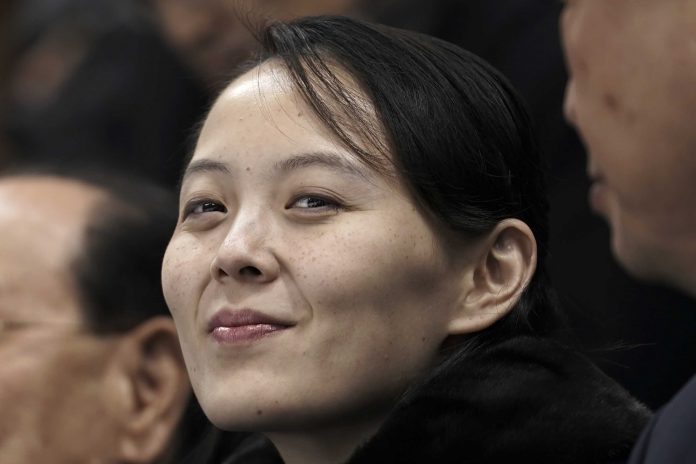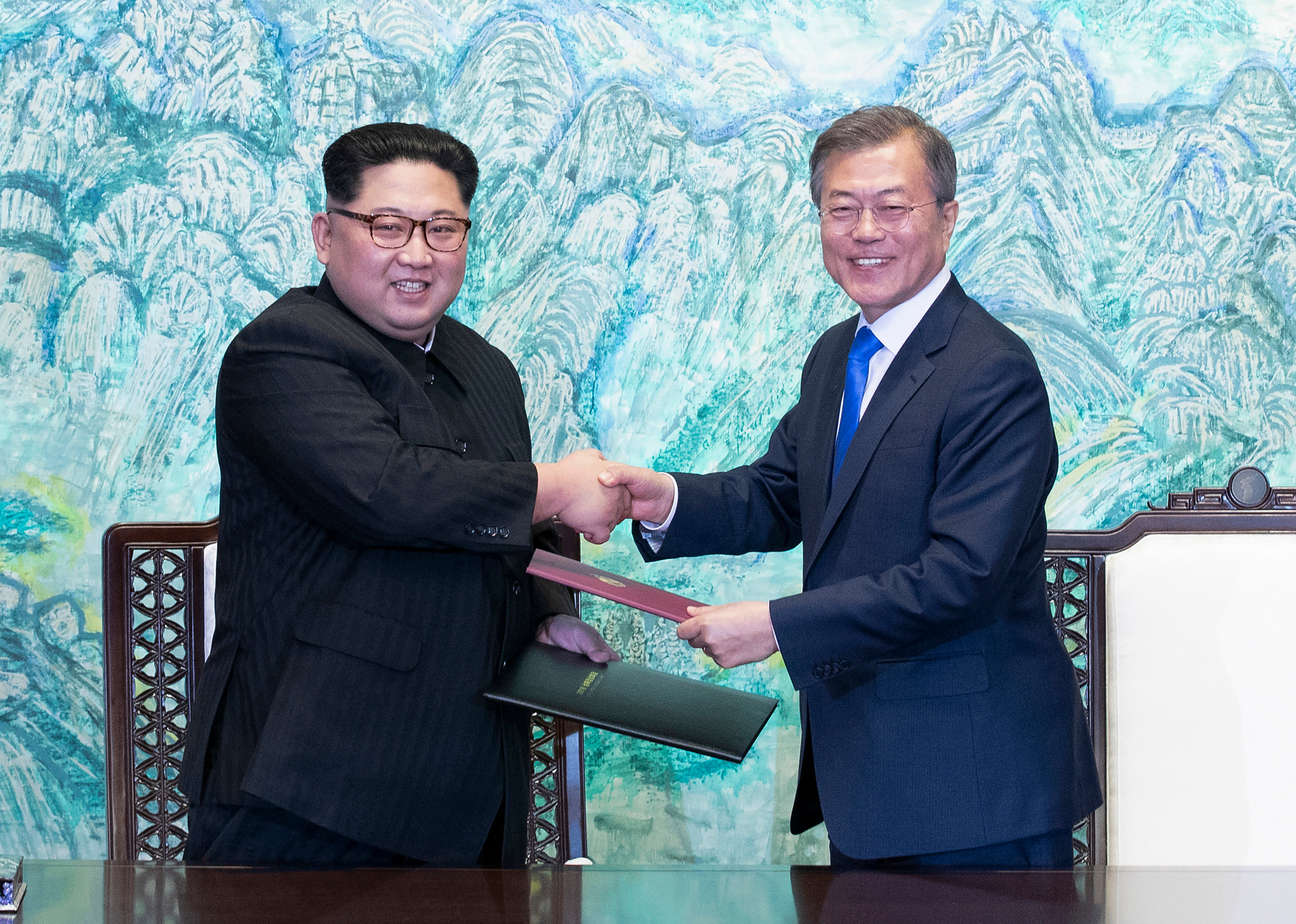
Associated Press
By HYUNG-JIN KIM and KIM TONG-HYUNG
Associated Press
SEOUL, South Korea (AP) — The powerful sister of North Korean leader Kim Jong Un dismissed prospects for an early resumption of diplomacy with the United States, saying Tuesday that U.S. expectations of talks would “plunge them into a greater disappointment.”
Kim Yo Jong’s blunt statement indicates that the diplomatic impasse over North Korea’s nuclear program is likely to continue unless the North suffers greater pandemic-related economic difficulties and needs urgent outside assistance, some experts said.
Hope for a restart of nuclear talks flared briefly after Kim Jong Un said last week that his country must be ready for both dialogue and confrontation, though more for confrontation. U.S. National Security adviser Jake Sullivan called Kim’s comments an “interesting signal.”
On Tuesday, Kim Yo Jong derided Sullivan’s response.
“It seems that the U.S. may interpret the situation in such a way as to seek a comfort for itself,” the official Korean Central News Agency quoted her as saying. “The expectation, which they chose to harbor the wrong way, would plunge them into a greater disappointment.”
Shin Beomchul, an analyst with the Seoul-based Korea Research Institute for National Strategy, said North Korea has been communicating the same message for months — that it has no intention to return to talks unless the United States offers meaningful concessions, likely in the form of eased economic sanctions. The Biden administration, for its part, doesn’t want to budge either, he said.
“Both parties are locked in a waiting game — North Korea wants the United States to make concessions first, and the United States has no intentions to match a level of action the North is demanding,” Shin said.
On Monday, during a visit to Seoul, Sung Kim, the top U.S. envoy on North Korea affairs, said Washington is willing to meet the North “anywhere, anytime without preconditions.” But he stressed that the Biden administration would continue to pressure North Korea with sanctions over its nuclear and missile ambitions.
Just before Kim Yo Jong’s statement was released on Tuesday, Sung Kim met South Korean Unification Minister Lee In-young and said Washington and Seoul remain committed to seeking the complete denuclearization of the Korean Peninsula through diplomacy. Lee said he hoped North Korea would return to the negotiating table at an early date and called the current situation “a very good chance” to resume talks.
Sung Kim later met South Korean President Moon Jae-in, and the two said they would strive to resume U.S.-North Korea talks, Moon’s office said. The South Korean government didn’t immediately comment on Kim Yo Jong’s statement.
As a precondition for the talks’ resumption, North Korea has repeatedly called on the United States to lift its “hostile policy” toward it, an apparent reference to the U.S.-led sanctions and regular military drills with South Korea. But experts say the Biden administration won’t ease sanctions or make other major concessions before North Korea takes concrete steps toward denuclearization.
North Korea may only ease its stance if it can no longer endure its ongoing economic hardship, some experts said. Kim Jong Un has admitted North Korea faces what he described as its “worst-ever” crises, due to drastically reduced international trade caused by pandemic-related border closings, mismanagement, the economic sanctions and crop-killing storms last year.
The deadlock “could be prolonged unless there’s a change in the conditions facing the North, such as greater economic or pandemic-related difficulties,” Shin said.
Analyst Cheong Seong-Chang at the private Sejong Institute in South Korea said Kim Yo Jong’s statement suggested North Korea isn’t ready to rejoin talks anytime soon.
“A mutual distrust and antagonism run so deep that the resumption of the North Korea-U.S. talks is difficult. Even if the U.S. and North Korea meet, it’ll never be easy to find common ground,” Cheong said.
Last Thursday, Kim Jong Un ordered officials to prepare for both dialogue and confrontation, “especially to get fully prepared for confrontation,” in order to protect national security and dignity.
In an interview with ABC News, Sullivan said Sunday that “His comments this week we regard as an interesting signal. And we will wait to see whether they are followed up with any kind of more direct communication to us about a potential path forward.”
U.S. officials have suggested Biden will take the middle ground between former President Donald Trump’s direct dealings with Kim and ex-President Barack Obama’s policy of “strategic patience.” Details of Biden’s North Korea policy haven’t been publicly released.
U.S.-led diplomacy aimed at striping North Korea of its nuclear program has stalled since February 2019, when the Americans rejected a North Korean demand for major sanctions relief in exchange for a partial surrender of its nuclear capabilities during a summit between Kim and Trump.



















